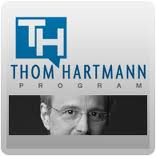 One thing that both parties have in common in this primary season is the fact that there's a sharp divide between "We, the People" populism, and the rich and powerful Washington establishment.
One thing that both parties have in common in this primary season is the fact that there's a sharp divide between "We, the People" populism, and the rich and powerful Washington establishment.
On the Republican side, Donald Trump is leading the race by running on a populist platform based on the fact that he's not beholden to the billionaires or lobbyists, and that he's never been part of the political establishment.
And during the Democratic debate, Bernie Sanders was asked what he thought about the fact that Hillary Clinton has so many endorsements from elected Democrats across the country, and even in Vermont.
If there's one person who exemplifies why Hillary Clinton and her campaign are part of the establishment though, it's her campaign's chief financial officer, Gary Gensler.
Just to be clear, this fight between "Establishment politicians" and "Anti-establishment politicians" is nothing new in American politics.
In fact, it's a fight that's literally as old as the country itself, going all the way back to Thomas Jefferson and his Anti-Federalists fighting with the Federalists, led by John Adams.
The fight basically came down to Thomas Jefferson arguing that "We, The People" should control our own destiny, and John Adams arguing that the "rabble" could not be trusted to govern ourselves.
The Federalists supported a strong federal government that was run by the wealthy, and one that could create a national bank to grant benefits to favored businesses.
On the other hand, Thomas Jefferson worked hard to amend our Constitution with a "Bill Of Rights" that would explicitly state the natural rights of the nations' new citizens.
Jefferson wrote to Francis Hopkinson and explicitly laid out what he saw as the shortcomings of the Constitution on March 13, 1789: "I am not a federalist… What I disapproved from the first moment also, was the want of a bill of rights, to guard liberty against the legislative as well as the executive branches of the government; that is to say, to secure freedom in religion, freedom of the press, freedom from monopolies, freedom from unlawful imprisonment, freedom from a permanent military, and a trial by jury, in all cases determinable by the laws of the land.".
Most of those freedoms were eventually guaranteed on December 15, 1791 when the Bill of Rights was ratified.
But Alexander Hamilton, John Adams, and the Federalists fought hard to keep one of those rights from being guaranteed: "Freedom from monopolies in commerce".
That omission represents a longstanding divide in American politics between the vested interests of the rich and powerful aristocrats - and Jefferson's vision of a more egalitarian democratic Republic elected directly by "We, the People".
And in many ways, that omission represents the biggest difference between Bernie Sanders and Hillary Clinton in the Democratic primary.
With all the flak that Hillary Clinton has been getting about being too close to Wall Street, she's been quick to point out that Bernie Sanders voted for the Commodity Futures Modernization Act in 2000.
And it sounds really bad for Bernie Sanders and his campaign's promise to reign in Wall Street excesses, especially because he frequently cites his voting record as evidence of his good judgment.
But what Clinton described isn't quite the whole story, and the whole story reveals a lot about Hillary Clinton's connections to the establishment.
As Alan Pyke pointed out over at ThinkProgress: the Commodity Futures Modernization Act was a modified version of an earlier bill that Bernie had voted for in the House of Representatives.
The earlier version that Sanders had voted for would have left room for regulators to go after fraudulent uses of derivatives, but it couldn't pass the Senate.
Then, while the nation was distracted in 2000 by the recount between George W. Bush and Al Gore; Phil Gramm, Richard Ewing, and a group of Clinton White House advisers worked out a "compromise" that made it nearly impossible to regulate futures and derivatives trading.
That bill was what was snuck into the omnibus bill that Bernie Sanders and pretty much everybody else voted for because if they hadn't it would have shut down the government.
And at that time, none other than Gary Gensler was serving as Bill Clinton's Undersecretary of the United States Treasury.
During his time at the Treasury, Gensler fought hard to deregulate the banks, and he helped to draft the Commodity Futures Modernization Act, the same bill that set-up the 2008 financial disaster and that Hillary is now attempting to pin on Bernie Sanders.
Gensler's career is the definition of the government-to-private sector revolving door: he went from Goldman Sachs to the Treasury, and then from the Treasury to Strayer University, a for-profit university.
Then he went from Strayer University to Paul S. Sarbanes office, and then from Sarbanes' office to "WageWorks Inc", where he worked even while he was leading Obama's Commodity Futures Trading Commission, according to OpenSecrets.org.
If Jefferson was uncomfortable with the idea of a federal bank because it would concentrate money and power in our federal government, it's hard to imagine what he would think about Gary Gensler's career.
And if Hillary Clinton wants voters to take her seriously about not being an "establishment" candidate, it might be time for her to cut ties with establishment revolving-door shills like Gary Gensler, who is currently the Chief Financial Officer and economic adviser to her campaign.
The Problem of the Establishment
By Thom Hartmann A...



